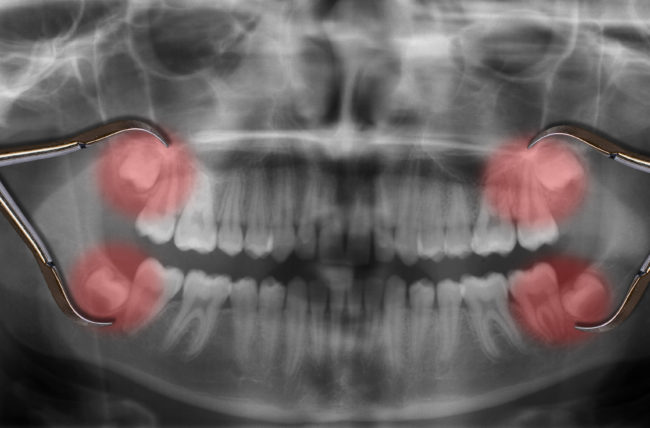Why Do We Get Wisdom Teeth?
October 28, 2021
The pace of our life is influenced by a variety of factors, including hormonal shifts, physical growth, and, of course, dental development. Most of us don’t remember teething, but many of us remember our wisdom teeth erupting and, if you live in an area where they’re routinely extracted, being wrenched out of our jaws. Although wisdom teeth are only one of three molar milestones, we had no understanding why they appeared so late in life until recently.
Our jaws are merely late bloomers, according to a recexnt study published in Science Advances.
Gary Schwartz, a paleoanthropologist at Arizona State University’s Institute of Human Origins and co-author of the work, said in a press statement, “It turns out that our jaws grow very slowly, likely due to our overall slow life histories and, in combination with our short faces, delays when a mechanically safe space—or a ‘sweet spot,’ if you will—is available, resulting in our very late ages at molar emergence.” It’s easy to forget that our teeth, along with the rest of our jaw structure, are subjected to a lot of mechanical pressure while we eat. As a result, your jaw must be developmentally ready to have teeth all the way back in our mouths, closest to the joint. The molars could injure the jaw they’re growing out of if wisdom teeth appeared early.
All of this is due to two fundamental characteristics of humans: long lives and short faces. Human life, as brief as it may appear, is quite long in comparison to that of other animals, including primates. We mature slowly, taking our time, and it takes an extraordinary amount of time for us to reach adulthood. Our faces, unlike those of our monkey counterparts, are flat and flattened. Just look at chimps or gorillas; their jaws expand outwards to the point where their mouths are mostly in front of their brains (though you probably never thought of it that way). Our faces are pressed against the inside of our skulls.
Because of these conditions, our jaws are unable to fit the final set of molars until later in life.
Many people in the United States have their wisdom teeth extracted, which may lead you to believe that they’re some kind of evolutionary relic—a relic of a prehistoric life that’s no longer relevant. But the truth is that you don’t have to get them taken out. Wisdom teeth are only removed in the United Kingdom if they become problematic, according to the National Health Service, as there is no proven benefit otherwise, but there is the added complication of having a minor surgery.
In any case, the teeth are an indication of our evolutionary progress rather than a relic. Our squashy faces and delayed development, strange dental development and all, are part of what makes us human.
Source: https://www.science.org/doi/10.1126/sciadv.abj0335
